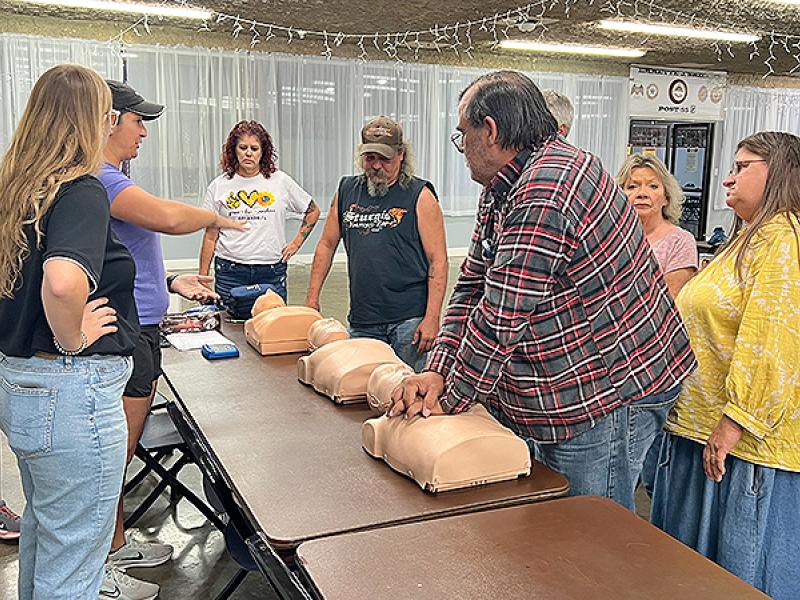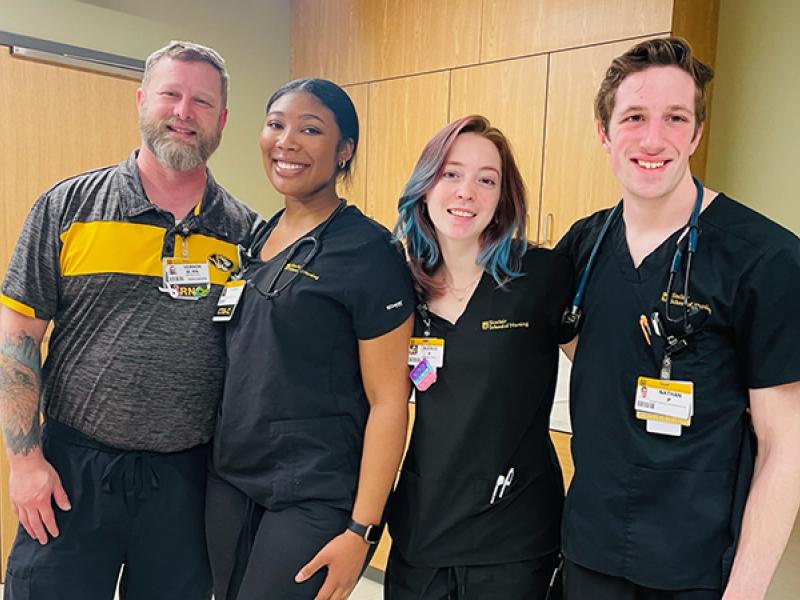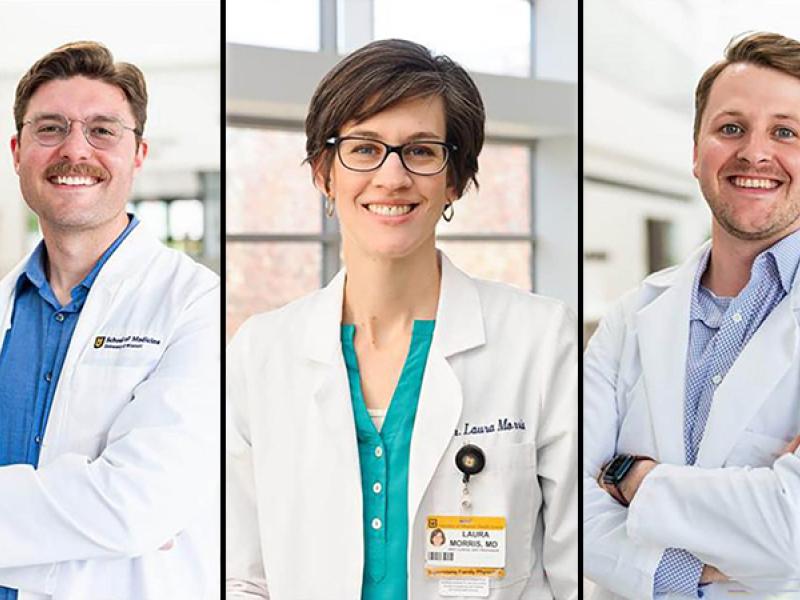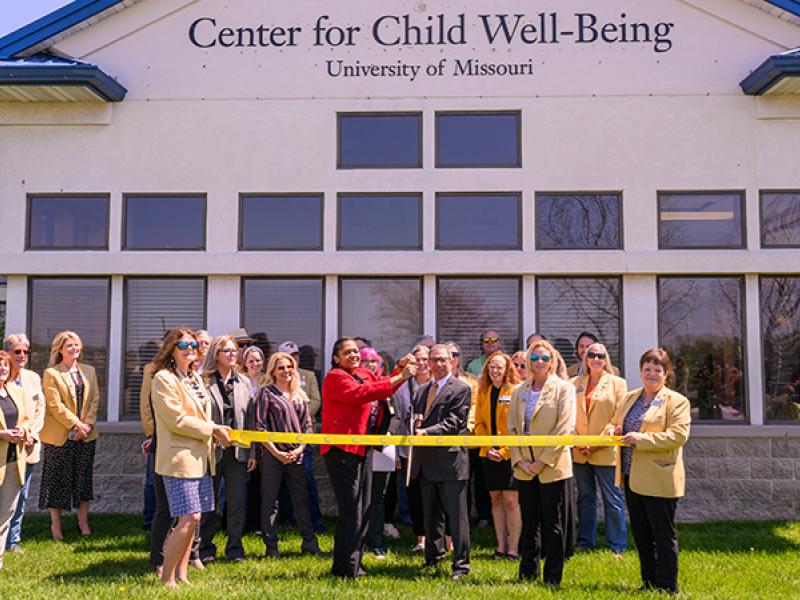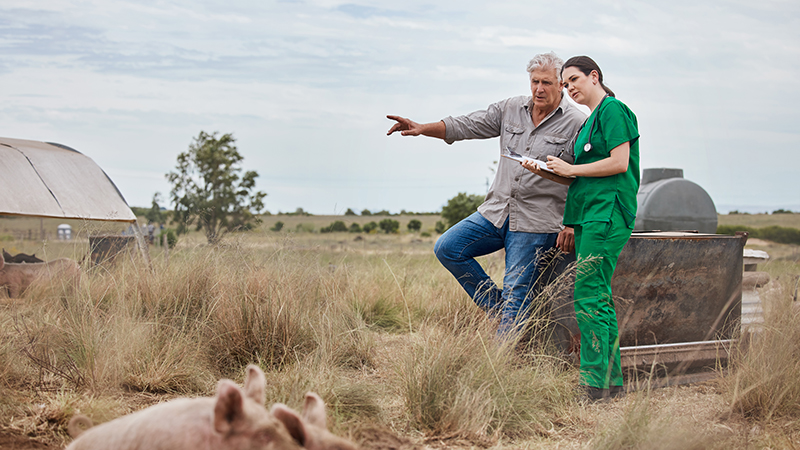
The University of Missouri School of Medicine has received a new federal award of $16 million from the Health Resources and Services Administration (HRSA) to expand programing aimed at addressing a shortage of physicians in rural Missouri.
The funding will support the University of Missouri School of Medicine’s Rural Scholars Program. Created in 1995, the program seeks to address primary care physician shortages and maldistribution in rural Missouri. It includes: the Bryant Scholars Pre-Admissions Program, which encourages young people from rural backgrounds to pursue medical school, as well as 10 rural training site partners where third-year medical students complete clinical clerkships. Other components of the program include:
- Summer Community Program: a summer session for rising second-year medical students that exposes them to different rural medicine opportunities.
- Rural Elective Program: an opportunity for fourth-year medical students to complete electives in rural, community-based settings.
- Rural Immersion Program: a four-day experience for students interested in living and working in a rural area. This non-clinical experience highlights the social and community aspects of rural life.
- Clinical Rural Immersion Program: School of Medicine students along with Sinclair School of Nursing and UMKC School of Pharmacy students are imbedded in a clinical site at a rural training location for a two-week summer experience.
“Our Rural Scholars Program exemplifies our strong commitment to rural health care by training and placing physicians in rural communities,” said Richard J. Barohn, MD, executive vice chancellor for Health Affairs and dean of the School of Medicine. “It reflects the responsibility we feel to address health challenges in underserved communities and is one of the many ways we’re saving and improving lives in every part of Missouri.”
In Missouri, the need to address access to primary care in rural areas is acute. More than a third of the state’s residents live in rural areas and the share of rural population over 65 is higher than in urban communities. As Missourians continue to live longer, the number of those with chronic diseases will increase, along with their need for access to healthcare and primary care physicians. Poor health means higher healthcare costs, which punctuates the importance of having medical services close to home to avoid the cost of travel to receive services.
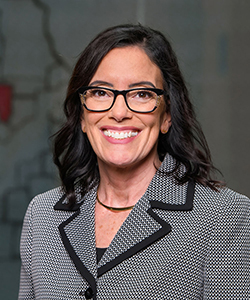
Kathleen Quinn, PhD, former associate dean for rural health, leads the University of Missouri School of Medicine’s rural health programs. Over the course of her 23 years guiding these programs, Quinn has established and leveraged statewide partnerships with organizations, communities and health systems to address the shortage of rural doctors by providing students with educational opportunities and clinical experience in rural Missouri.
“Physicians who train primarily in rural settings are more likely to practice there. We also know that increasing the number of primary care physicians in a community is associated with improved population health,” said Quinn. “The rural program physicians we’re producing consistently enter rural practices at rates well above the national average. We’re making a difference in rural health care in a very tangible way.”
Since starting the Rural Scholars Program, nearly 50% of medical school students admitted through the Bryant Scholars program at MU are now practicing as physicians in rural Missouri and 43% are primary care doctors.
In 2019, Quinn’s team received nearly $5 million to fund the expansion of the rural scholars program. Longitudinal Integrated Clerkships (LINC) were implemented in three of the ten rural clinical training sites. LINC is a year-long intensive program that focuses on providing third-year medical students with rural health care experience. Bothwell Regional Health Center in Sedalia is one of three training sites participating in LINC. Other LINC sites include Hannibal Regional Hospital and Mosaic Life Care in St. Joseph.
HRSA has provided additional grant funding to support expansion of mobile simulation training and increasing participation in Show-Me Extension for Community Healthcare Outcomes (ECHO). ECHO connects rural primary care providers and students with interdisciplinary teams of experts who can help them develop advanced skills and best practices, which improves patient care access, quality and efficiency.
In addition to enhancing and expanding the existing Rural Scholars Program, this new award will complement additional rural curriculum elements, including scholarships for students interested in rural medicine.
“This funding will enable us to establish new curricula, expand clinical training site partnerships, expose students throughout the state to health careers, provide additional scholarships to students who intend to practice in rural communities, and create new faculty training programs,” said Whitney LeFevre, MD, Rural Scholars Medical Director at the University of Missouri School of Medicine. “This grant offers an exciting opportunity to grow medical education for students who are likely to choose primary care practices in rural Missouri.”
The Rural Scholars Program is part of the Office of Health Outreach, Policy & Education (HOPE). HOPE is a collaborative partnership between the University of Missouri School of Medicine and MU Extension and Engagement that demonstrates MU’s integrated approach to community health as well as its commitment as a land-grant institution to improve the health and well-being of all Missourians
HRSA is an agency within the U.S. Department of Health and Human Services. MU’s Rural Scholars Program has received more than $17 million in federal funding prior to this award. This new funding runs through 2027, subject to availability of federal funds.


